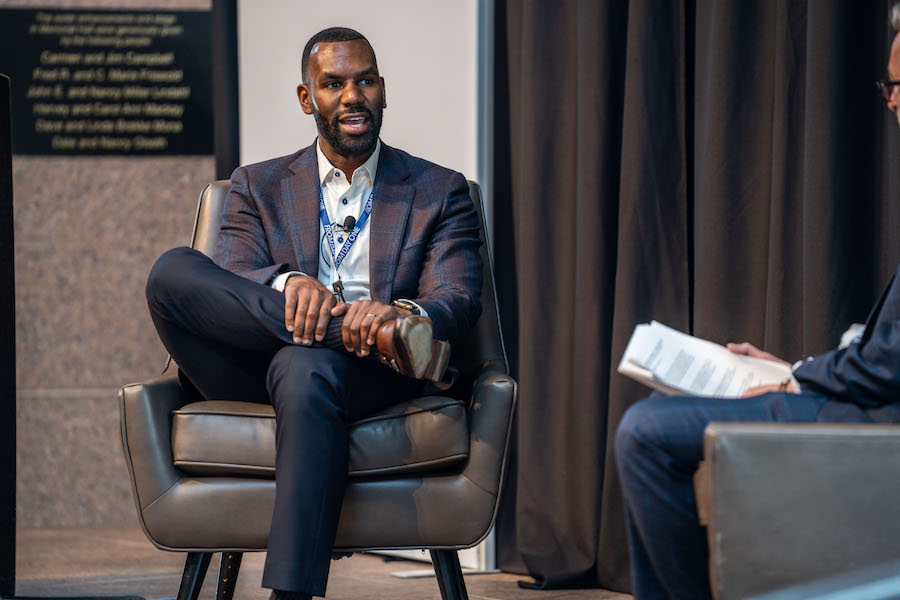Making Diversity and Inclusion Happen on a Very Large Scale


The 2020 murder of George Floyd was a watershed event in the Twin Cities, including more subtle reasons than the ones most often noted.
To Antonio Henry, vice president of global diversity, equity, and inclusion (DEI) for UnitedHealth Group, the murder and its fallout provided lessons and incentives for the work he does.
“It reinforced the need to move mast traditional DEI training and into tactical planning,” said Henry. “The challenge we face most often is having the time it takes to achieve sustainable progress. We want to do things fast, but we need to do them the right way.”
And what’s stopping large organizations from reaching that goal? A number of factors, including lack of education, the ever-shifting social/political climate, lived experience that can either encourage or discourage empathy.
“It’s difficult for any of us to say we can effectively walk in someone else’s shoes,” he said. “I want to understand the shoes you walk in, not necessarily walk in them.”
Henry was a guest at a fireside chat-format discussion during From Day One’s recent Minneapolis conference. He was interviewed by Steve Koepp, chief content officer at From Day One.
Henry said he’s encouraged by seeing organizations be more proactive and deliberate about provoking thought equity and leadership around DEI initiatives.
“How do we continue to say, ‘Hey, we’d love to hear your thoughts on this’?” he said. “And the resisters in your organization are just as important as advocates for (DEI) work because they can show you what the pulse of the environment is like.”
Henry, whose background is in banking and finance, understood early in his career that it was crucial to connect finance to community. That connection, he found, was even bigger and more important in the world of health care. That has led to what he calls a hyper-focus on people when he’s designing and effecting DEI initiatives.
“You have to look at the whole person before you look at them as an employee,” he said. “You need to ask, How do we contribute to the lifestyle they want? The employee’s performance absolutely matters, but you won’t get their best unless you put them in teams that can leverage their true potential.”

One key to making that happen revolves around the idea of sponsorship, as opposed to advocacy or even mentorship. What’s the difference? Sponsorship, as Henry sees it, creates the opportunity to speak on a promising worker’s behalf in important settings such as meetings, as opposed to simply providing one-on-one coaching. United Health’s sheer scope, more than 400,000 employees, offers its leadership greater and more effective opportunities to sponsor.
“It lets you speak about someone’s work, their character, their ability to learn and succeed,” he said. “A sponsor, even if it’s a peer, can not only provide ongoing feedback, but determine how that person is seen in meetings and how their work product is seen.”
As far as implementing and fostering DEI efforts, Henry advised working with the appetite for change that comes with volatile times. COVID, he said, has taught businesses the value of employing flexible strategies that might not be considered when external forces aren’t causing disruption in the workplace.
“A good DEI strategy will be forward-thinking and agile enough to thrive when things are uncertain,” he said. “It’s those times that cause you to ask if you have a strategy that deals with an employee whose responsibilities might shift because of those circumstances.
“I went from business operations to talent management to where I’m focused on social-impact things I wouldn’t have ever imagined,” he continued. “That was made possible because the organization saw me for more than just my current role. Look to your people for aptitudes, things that are special to them, that you can tap into.”
Dan Heilman is a Minneapolis-based journalist.
The From Day One Newsletter is a monthly roundup of articles, features, and editorials on innovative ways for companies to forge stronger relationships with their employees, customers, and communities.